Apple's AFTERPARTY is an invitation you should accept
Plus more Quick Bites and some thoughts on Sean Penn's comments
It’s Saturday, January 29, and here’s where we are…
I was just having a conversation with my girlfriend about Sean Penn the other day, talking about his work in Licorice Pizza. She’s a few years older than me, so she remembers that early run of films he was in, including Taps, Fast Times at Ridgemont High, Racing With The Moon, and Bad Boys, and she talked about how she feels like he’s consistently underrated as an actor. We’re both fans, which makes a day like today even more disappointing.
There was a time I would have been his most ardent defender. I love all those early films, and I think he’s amazing in At Close Range, Colors, and especially Brian De Palma’s Casualties of War. I was of the opinion that Sean Penn was one of the greats, and in the ‘90s, he kicked it into another gear with Carlito’s Way and Dead Man Walking and Sweet and Lowdown while also kicking off a solid, sometimes quite moving career as a director. I adore The Indian Runner and Into The Wild, and I like many of his films to varying degrees. I think Penn has been able to carve out a very ‘70s career for himself in a lot of decades that are, notably, not the ‘70s. That’s to be admired.
The interview that The Independent just published is stirring up controversy, and part of me wants to just shrug it off because I’m growing increasingly numb from the way we talk about celebrities. But his comments happened to land just as I was considering something already because of a podcast appearance I recorded on Thursday night, and it definitely feels like it’s something worth sharing.
“I am in the club that believes that men in American culture have become wildly feminised,” he said to one paper, and The Independent basically waves the quote in front of him like a red flag to get him to double down. His entire follow-up quote is “I have these very strong women in my life who do not take masculinity as a sign of oppression toward them. There are a lot of, I think, cowardly genes that lead to people surrendering their jeans and putting on a skirt.” Fucking oof, dude. You can’t just say, “I am more comfortable in my own life playing a traditionally masculine role,” which is entirely reasonable and understandable. Nope. You’ve got to throw in some weird crack about genes and jeans and trading them in for a skirt. It’s the kind of crack I’ve been hearing my entire life, frankly, and I’ve started really thinking about the cumulative weight of all of this fear of femininity and softness and the perception of masculinity.
In about a week, you’ll be able to hear me on Soundtracker, a podcast about movies and the soundtrack albums that accompany them. I chose Married to the Mob as the film/soundtrack I wanted to discuss, and I had a terrific conversation with the show’s host, Eric Peacock. It wasn’t until I started listening to the album last week for the first time in at least twenty years that I remembered just how important an album it was for me and why it was important.
At the time, I lived in Florida, and my entire adolescence was spent in various corners of the South. Texas, Tennessee, Florida… these were not progressive spaces in the ‘80s when I was there. Within my own extended family, I learned early on that my aunt was gay, and my father went out of his way to explain to me that it didn’t change the way he felt about his sister at all. She was always treated like family, as was her partner, and I grew up loving them and viewing their relationship as normal.
At least, it was normal within our family. I was aware that outside of our family, the world was not nearly as accepting. The reason I was told was that we all went out to dinner during a Thanksgiving trip where they all visited us in Chattanooga. We were at a restaurant and someone at another table got upset about my aunt and her partner. I don’t even remember any particularly overt displays of affection, but something set these people off, and there was a nasty verbal altercation. My dad sat me down that night to talk the whole thing through with me, including the way those people acted, and he explained that there were plenty of people who got irrationally angry about seeing gay people. I was already grappling at that point with my personal disappointment about the racists in our family, so I understood bigotry and how ugly it could be.
By the time I reached high school, it was very clear to me that there were no gay kids in any of my schools. Or rather, it was clear that there was no way any gay kids could admit they were gay and find any kind of social acceptance. The words “fag” and “faggot” were used like punctuation marks, and there was nothing worse you could tell someone than “That is so gay” in response to an idea. This was the age when Eddie Murphy’s Delirious ruled supreme, after all. I moved frequently, so it was hard for me to build friendships, but once I got to high school, my parents did their best to stay in one place long enough for me to do my entire high school experience in the same place. For the first time, I was able to carve out a group of friends that I kept for more than a year and I lived in constant fear that I would screw it up. I didn’t really understand how to maintain relationships over time, and I thought my entire job was to just fit in and get along. That led to me being quiet during a lot of conversations that made me uncomfortable and allowing the group to set boundaries for what was or wasn’t acceptable. When it came to movies, there was this general sense that I would watch anything and that my interest in films kind of rendered any subject matter as acceptable. With music, though, there were far more stringent rules about what we listened to as a group. We constantly raided each other’s collections and traded tapes and LPs, so there was very little chance you could build a secret music collection. Everything had to be vetted. Everything had to be approved. And lord help the guy who bought an album that was considered “too gay.” Even if you got rid of it, the peer pressure and the browbeating were relentless.
I found a loophole, though. If I bought a soundtrack to a movie, it didn’t really matter how “gay” the music was because my friends saw it as a soundtrack. If I went out and bought an Orchestral Manoeuvres in the Dark album, they would have made my life miserable, but if I bought the Pretty In Pink soundtrack, it was fine. I found myself buying soundtracks as a way of learning about new music that I often couldn’t go out and buy without getting shit for it. At the time, my friends didn’t seem any more or less homophobic than the rest of my school or the people at work, but it was crystal clear across the board that there was no space for someone to come out and feel any kind of support. From the perspective of 52-year-old Drew, it’s equally clear that there were kids in my school who were closeted and genuinely afraid all the time, and even if my role was passive, I was part of perpetuating that. I played along because I wanted to fit in. I was careful about what I consumed and what I shared with people, not because I’m gay but because I was afraid that any implication I was would derail the fragile social structure I’d built for myself. I look at my kids and the world they are navigating, and whatever horrors they’re facing, they’re at least allowed to be themselves in a way that we never were. I’m sure peer pressure is still just as ferocious as ever, but there is so much more acceptance at every level now. My younger son’s middle school has an LGBTQ students group, something I cannot even imagine our school entertaining in 1987. There were no students who would have been brave enough to try to create, much less attend, a group like that, and that’s because they knew full well what kind of blowback there would be. My kids both have gay classmates, and Toshi’s got a trans student in his class who he’s been friends with since before they came to that realization, and neither one of them has ever seemed even remotely phased by any of it. I have friends with gay kids and there are so many more options for them in terms of real-world role models or media representation. It would be ridiculous to say there are no difficulties for kids that age as they work to figure out their identity, but the world has definitely become much more welcoming in key, important ways.
When Sean Penn gives an interview like this, on one level it’s just a dumb celebrity mouthing off while he’s promoting a movie and you can ignore it and it goes away as soon as there’s another movie to sell and another celebrity to interview. But on another level, it’s a reinforcement of every single person who made anyone feel like they couldn’t be who they were because they were afraid they didn’t fit into someone else’s definition of masculinity. My father is cut from a very particular cloth, and his role models were guys like John Wayne and Steve McQueen and Clint Eastwood. Even so, he seemed perfectly able to understand who his sister was and to love her and accept her and he made sure that we saw her the same way. I’m not sure how he would have reacted if I’d ever realized I was gay, but it seems like they would have made peace with it. I’m not sure I would have been strong enough to deal with my peers, though. I spent so much of that decade afraid to even enjoy music that would have gotten me saddled with the label, and so much of the reasoning behind the name-calling was arbitrary and stupid, based on ridiculous ideas about masculinity. When I bought a Love & Rockets album, I was mocked for weeks until I finally got rid of it, but Judas Priest was considered very cool, very hetero. Metal bands could wear things that would have gotten me beaten up, but as long as they projected the right coded behavior, they avoided being called “gay.” Duran Duran was called gay by my peers, but mainly because the girls my age were all completely smitten with them. If you liked something that girls liked, that was enough for it to be considered gay, and I realize now that many of my early “girlfriends” were actually just girl friends, and the time I spent with them was more about enjoying things with them that I couldn’t enjoy with the guys I knew.
I love a lot of things about the time I grew up, but I don’t miss the very narrow definitions of masculinity that dominated the conversation. Even as guys like Boy George and Prince and George Michael pushed pop stardom’s definition of masculinity in some provocative new directions, I found myself surrounded by a very regressive overall atmosphere, and I was not strong enough to push back against it. When Sean Penn gets huffy about a more feminized world, he’s revealing his own faulty programming, and I recognize where it came from. We were raised on certain iconography, and for a young method actor who was in his early 20s as the ‘80s began, there were some very specific role models to emulate. Penn learned this shit the same way I did, and I guess I’m surprised that he is still this wrapped up in it. He did, after all, play Harvey Milk, and I think he’s made films that interrogate some of this bullshit.
Honestly, I think the world is more feminized, too, but I don’t think that’s a bad thing. I think the more we push “softness,” which really just translates to empathy and acceptance, the better it is for us in general. I wish I’d been given a broader range of role models and the freedom to really explore more ideas of what masculinity means. I wish I’d been able to grow up with a peer group that didn’t beat the difference out of everyone through fear and humiliation. I wish I’d been strong enough to be an ally and friend to the kids who were struggling in silence and denial in my school, and that they could have had high school memories in which they were centered instead of marginalized and erased. And I wish that guys Penn’s age would realize that progress and change are not only necessary but hopefully baked into the way things work generationally. Our kids are always going to seem more liberal because of the people who have fought so hard to make those spaces possible. When you are given room to express yourself fully, that expression is going to seem like a huge radical change to people who bought into the narrow ideas of the previous generations. There’s nothing wrong with wanting to be a hyper-masculine man’s man unless you feel like you have to impose that same role on someone else. Penn’s comments carry weight precisely because he continues to show up and do great affecting work. Watching him play William Holden, an icon of a certain kind of masculinity, he is as good as he’s ever been, a movie star who understands his own iconic import. If only he understood the responsibility that goes along with that and realized that he is making a reasonable position completely toxic by insisting on that same one-size-fits-all bullshit that left my generation pretending to be more enlightened than our parents while practically reveling in our ignorant bigotry, roaring in laughter at Lamar’s limp wrists in Revenge of the Nerds even as we claimed that the film took a stance against bullying.
It’s easy for me, even now, to pick and choose when I am upset by comments or positions like these. I think J.K. Rowling has burned her legacy to the ground in a way that is hard to comprehend. The only reason I can think for her to continually reinforce these same rotten transphobic positions is that she just can’t get past her own programming. As much as she wants to think of herself as a reasonable, liberal, or even progressive person, she is still completely locked into ideas and vocabulary from the past. Dave Chapelle isn’t stupid, but he is biased, programmed into a cultural perspective that he seems incapable of shaking. It’s difficult to push yourself out of the point-of-view that everyone around you shared during your formative years, and it requires constant work, constant effort. More than that, it requires other people speaking up directly to you. I had a friend recently try to talk to me about Patton Oswalt’s appearance on the same bill as Chapelle and the way people reacted to Oswalt’s comments about it. I was exasperated, and I dismissed his feelings about it quickly and aggressively. While I still think there’s some distance between Penn’s comments and Oswalt’s actions, it’s on a continuum, and it’s all part of that same attitude, reinforcing things that have fucked us up rather than making room for new definitions and behaviors, just like my reaction was. I’m sure, simply from knowing him over the years as a friend, that Oswalt is genuinely progressive, but I think he also sees Chapelle as a friend, with shared experiences that bond them in very real ways. I look back at high school, and those guys were my friends, but at the same time, they reinforced and demanded some toxic, regressive ideas, and they shamed me out of liking things and doing things by weaponizing the idea that the culture you consume is what defines your sexual identity.
Sean Penn may not like a more feminized world, but the pushback he’s getting is a clear sign that he doesn’t really get to decide what the world is. Maybe soon he’ll realize the world was always different than he thought it was, and that the real change is that people aren’t willing to be silenced or shamed anymore. This isn’t about cancel culture at all. It’s about cultural vocabulary and the way we’ve expanded the conversation, and that’s a good thing for everyone.
QUICK BITES
Simon Kinberg’s The 355 is an example of true equality in Hollywood because this is every bit the big boring bag of bullshit as something like The Expendables 2, a casting package in search of a storyline. The women-driven cast is fine. They’re all game for the ass-kicking. There’s some solid action choreography, and everyone rises to the occasion. But I could not possibly care any less about anything that happens in the film, and that title doesn’t communicate anything to anyone, even after you hear the explanation in the film. But, hey, I’m all for it. Women should be allowed to star in terrible mediocre genre films just like men, and every single actor in this ensemble (Jessica Chastain, Penelope Cruz, Diane Kruger, Fan Bingbing, Lupitá Nyong’o) should get more work in the same genre because they all do everything they’re given to do with aplomb. In the end, without a story that matters to me or a narrative hook that is more than “one spy betrays another spy,” I don’t care who the stars of a movie are, and just casting capable women shouldn’t be enough of a gimmick to get a greenlight in 2022. Do better.
I finally carved out time for the rest of the limited-run adaptation of Emily St. John Mandel’s gorgeous novel Station Eleven, and I’m impressed by the adaptation overall. What impresses me most is that it’s a real adaptation, that they felt free to do their own thing with the material, but in a way that made it clear they loved the book as much as everyone who made it a sensation in the first place. I do not envy Patrick Somerville and Jessica Rhoades the task of adapting the book in any circumstances, but doubly so while there was an actual global pandemic underway. I found the show deeply moving, but even once it became clear where they were going to go, I still wasn’t ready for just how powerfully emotional I would find the conclusion. Mackenzie Davis and Himesh Patel anchor this sprawling, gorgeous ensemble with their powerful work, and I love that the show was about learning how not to fight, the opposite of pretty much every post-apocalypse story we’ve seen for the last 40 years. By the time I got to what feels like the single gesture that is the entire point of the show, I felt fully invested in these ragged, resilient characters, and it broke me. It is rare that a book I love this much becomes a show or a film I love this much, and if you haven’t seen it because you’re worried about it being a bummer after what we’ve all gone through these last few years, I would urge you to give it a try. It felt downright healing to see something this good deal with these themes this well.
One of the things that the rise of the new streaming service ecosystem has done is given all sorts of creatives a chance to resurrect projects they thought were dead. The content maw is voracious, and it needs content. There are plenty of things being brought back that were probably dead for a reason, but this also means we’re going to get some things that maybe didn’t fit into an easy box that make more sense on a service that’s taking big swings while trying to build a reputation. Apple TV+ may not churn out the same volume of things as Netflix or Disney+, but it feels like they’re making some genuinely interesting shows, and The Afterparty might be one of my favorites from them so far. Phil Lord and Chris Miller originally conceived this as a film called The Reunion, but I’m not sure it would have been the same kind of fun that it is as an eight-episode limited series. The show tells the story of a murder that takes place at an afterparty for a high school reunion, and each episode is told from the perspective of a different person at the party in a different genre. The first episode is a romantic comedy, the second is an action movie, the third is a musical. I love the cast, including Dave Franco, Ike Barinholtz, Tiffany Haddish, Ilana Glazer, and Sam Richardson as the primary suspect in the murder. So far, five episodes in, my favorite thing about the show is Ben Schwartz as Yasper, and when you see the showcase they built for him in the musical episode, it’s such a treat. Everyone feels like they’re getting a moment to shine by virtue of the way the show is built. I’m plowing through the episodes on the Apple screener site, but they very specifically left the final episode off, so I’ll have to wait until the weekend of March 4th just like the rest of you to see if my theories about who did what prove to be true. What’s already clear is that this is another Lord/Miller winner, with Miller as the primary creative force this time around, and another home run for Apple as well.
I love preordering things for Kindle because I have the attention span of a goldfish. I preorder something and I immediately forget it exists until it auto-delivers to my Kindle, at which point I feel like Digital Santa just made a visit. That happened this week when issue #55 of Saga arrived. I opened my Kindle as I settled in to read in bed and was so shocked to see it there that I must have made an alarming sound, enough to get my girlfriend’s attention. I explained to her that it’s been three years since they put the story on pause at a particularly distressing moment and that Saga is one of the best creator-owned comics I’ve ever read and that both Brian K. Vaughn and Fiona Staples are brilliant and weird and wonderful and the collaboration of the two of them is one of those things I feel lucky to be able to read as it unfolds, so the return of the book is a big deal but the surprise return of the book? That was just delightful. The issue is everything I would have hoped, too, a sort of reset that sets the stage for the next 54 issues, which should bring the entire story to a close. Part space-opera, part wise-ass family drama, part fairy-tale love story, Saga can be sweet and emotional and raunchy and shockingly violent, sometimes all within the span of a few pages, and it doesn’t really look like any other book out there, and Fonographiks, who letters the book, gives it a real sense of identity and style. It is everything I love about comics and I am so happy that it’s not just back but just as great as it’s always been. Now’s the time to jump in, because Vaughn and Staples should make this a run for the ages.
Another of this week’s comics is less dazzling but at least noteworthy. DC has struck gold with all kinds of comics that extend certain live-action takes on their characters, but in comic form. There are plenty of books featuring Adam West’s Batman now, and there’s a comic mini-series sequel to 1989’s Batman running right now that was written by Sam Hamm. Robert Venditti and Willfredo Torres are the team behind Superman ’78, which is a direct sequel to Donner’s take on Superman, using Brainiac as the main bad guy. Much of the kick of the book comes from seeing how well they capture the essence of Christopher Reeve and Margot Kidder and Jackie Cooper and Doug McClure and Gene Hackman, and that’s not easy. So much of what I love about Donner’s film comes down to performance, and both Venditti and Torres seem to love the same things about the Donner films that I do. It’s a pretty standard Brainiac story, but there are little details in every one of the six issues that should please Reeve fans. I love that they cast Yul Brenner as Brainiac. That feels like he could have been the choice if this was being made in 1982, right between Superman II and Superman III. In something that exists as pure fan service like this, I can’t get upset that they lean into it, and I was charmed by the Otisburg graffiti or by seeing Richard Pryor show up in a crowd scene or by the Goonies cameo you see above. This is a big ol’ piece of nostalgia candy, and if you have any fondness for Donner and Reeve, you should indulge.
AND FINALLY…
We’re going to kick off the year-end series on Tuesday, so make sure you are here for that. I’m packing a full 30 entries onto the list this year, but I’ll be including both films and television, so it’s going to be a very different read than it’s been in years past. Or at least, I hope it will. I was going to include that here today, but I ran long on the opening piece, and I didn’t want the list to distract from what I was saying.
I’ve also been doing some reading lately, and I thought it might be fun to talk about the Black List, the annual project in which scripts are picked that have been well-regarded in the development community in the previous year. I rarely talk about screenplays anymore, and while I’m not interested in reviewing them, I think when you read all of the entries on the list, it offers an interesting portrait of where our industry is right now and where it wishes it was.
I’ve got all that and more coming, and I appreciate, as always, that you guys have chosen to be here. Your subscriptions keep the lights on, and if you like what you’re reading, spread the word.
It’s been just over two weeks since my media diary was published. As always, anything in bold was particularly enjoyed.
THIS WEEK’S BOOKS: The White Album by Joan Didion; The Expert System’s Brother by Adrian Tchaikovsky; The Sun Down Motel by Simone St. James; Killer’s Choice by Ed McBain; Slouching Towards Bethlehem by Joan Didion; Dumb Witness by Agatha Christie; The Nightmare Dimension by David Conyers; Swan Song by Robert R. McCammon
THIS WEEK’S COMICS: Star Wars: The High Republic - Trail of Shadows #5; Superman ’78 #6; Epic Collection: Moon Knight - Shadows of the Moon; Moon Knight: From The Dead; Fantastic Four by Jonathan Hickman: The Complete Collection Vol. 4; Star Wars: The High Republic #11; Star Wars: The High Republic Adventures - Galactic Bake-Off Spectacular; Eternals #9; Defenders #5; Criminal: Coward; Saga #55
THIS WEEK’S PODCASTS: Screen Drafts - “NASA with Alan Sepinwall and Linda Holmes,” “Movies About Screenwriters with Evan Dickson and Jarrod Murray”; Did You Get My Text - “Vendetta Regifting,” “Get That Igneous Out Of Here”; Downlow’d - “Citizen Knowles and the Lord of the Geeks,” “There Will Be Nerds,” “BONUS: Comments Section (Vol. 1)”; The Purple Stuff Podcast - “Burger King”; Doughboys - “QDOBA with Jamelle Bouie,” “Thighstop with Jon Gabrus,” “Sweet Chick with Tami Sagher”; High & Mighty w/Jon Gabrus - “Wheel of Time w/ Jackie Jennings and Nicole Drespel,” “Taco Bell Wings w/Nick Wiger, Mike Mitchell, Mano Agapion, and Betsy Sodaro,” “Live in PDX w/Sean Jordan,” “Being a Pedestrian w/Scott Epstein”; With Gourley & Rust - “Scream 3,” “Scream 4”; Films To Be Buried With - “Sean McLoughlin - The Resurrection!,” “Daniel Rigby”; Boogie Monster - “Big Ol’ Foot,” “2 Tickets To Paradise”; MBMBaM - “The Trumpet,” “Foolish and Vacuous Perfume Oil”; TV Guidance Counselor - “Dr. Molly Miller”; Blank Check - “Sweetie with Sarah-Violet Bliss,” “Married To The Mob with Ang Farraguto,” “Alice in Wonderland with Todd Van Der Werff”; Soundtracker - “Reservoir Dogs w/Matt Christman”; The Always Sunny Podcast - “The Gang Exploits a Miracle,” “The Gang Runs for Office”
THIS WEEK’S TV: Letterkenny S10 E4, E5; Archive 81 S1 E1, E2; Landscapers S1 E2 - E4; The Sex Lives of College Girls S1 E3 - E6; Station Eleven S1 E6 - E10; Home Economics S2 E11, E12; Superman and Lois S2 E1 - E3; Yellowjackets S1 E10; The Afterparty S1 E1 - E5; Search Party S5 E3 - E5; Maid S1 E3, E4; Big Mouth S5 E5, The Righteous Gemstones S2 E3, E4; Room 222 S1 E1; Somebody Somewhere S1 E1, E2; This Is Us S6 E3, E4; Abbott Elementary S1 E4, E5; Peacemaker S1 E1, E4, E5; The Book of Boba Fett S1 E4, E5; Ozark S4 E1; The Kids in the Hall S1 E13; The Gilded Age S1 E1; Aziz Ansari: Nightclub Comedian; Married at First Sight S14 E3, E4; Resident Alien S2 E1; For All Mankind S1 E1 - E3
THIS WEEK’S GAMING: Assassin’s Creed: Valhalla
THIS WEEK’S MOVIES: King Boxer; The Power of the Dog; Honeysuckle Rose; The Boxer from Shantung; The Hunter; Loose Shoes; Raise the Titanic; Cyrano; Pleasure; Scream 2; Scream 3; Scream 4; Scream (2022); A Hard Day’s Night; Dressed To Kill; Prom Night; Last Night In Soho; Licorice Pizza; The Stunt Man; The Fiendish Plot of Dr. Fu Manchu; Kung Fu Panda; Battle Beyond The Stars; Cyrus; The Kidnapping of the President; The Octagon; Married to the Mob; The 355; The Big Brawl; Smokey and the Bandit II

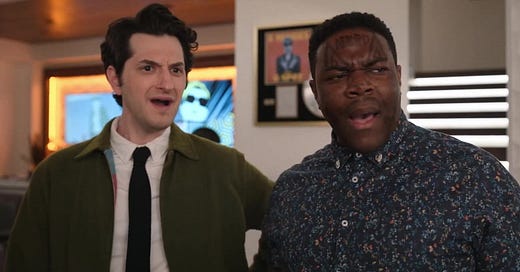


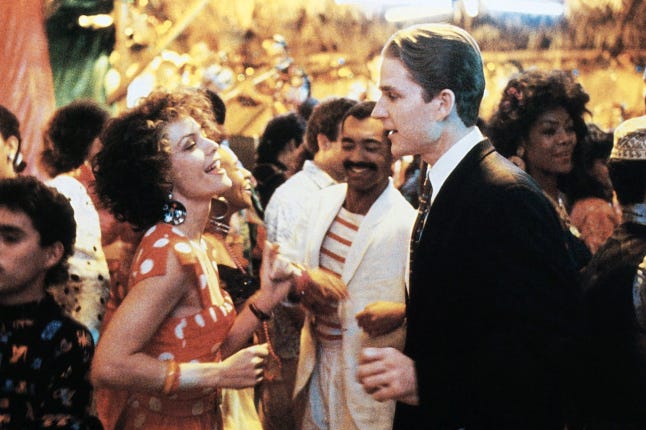
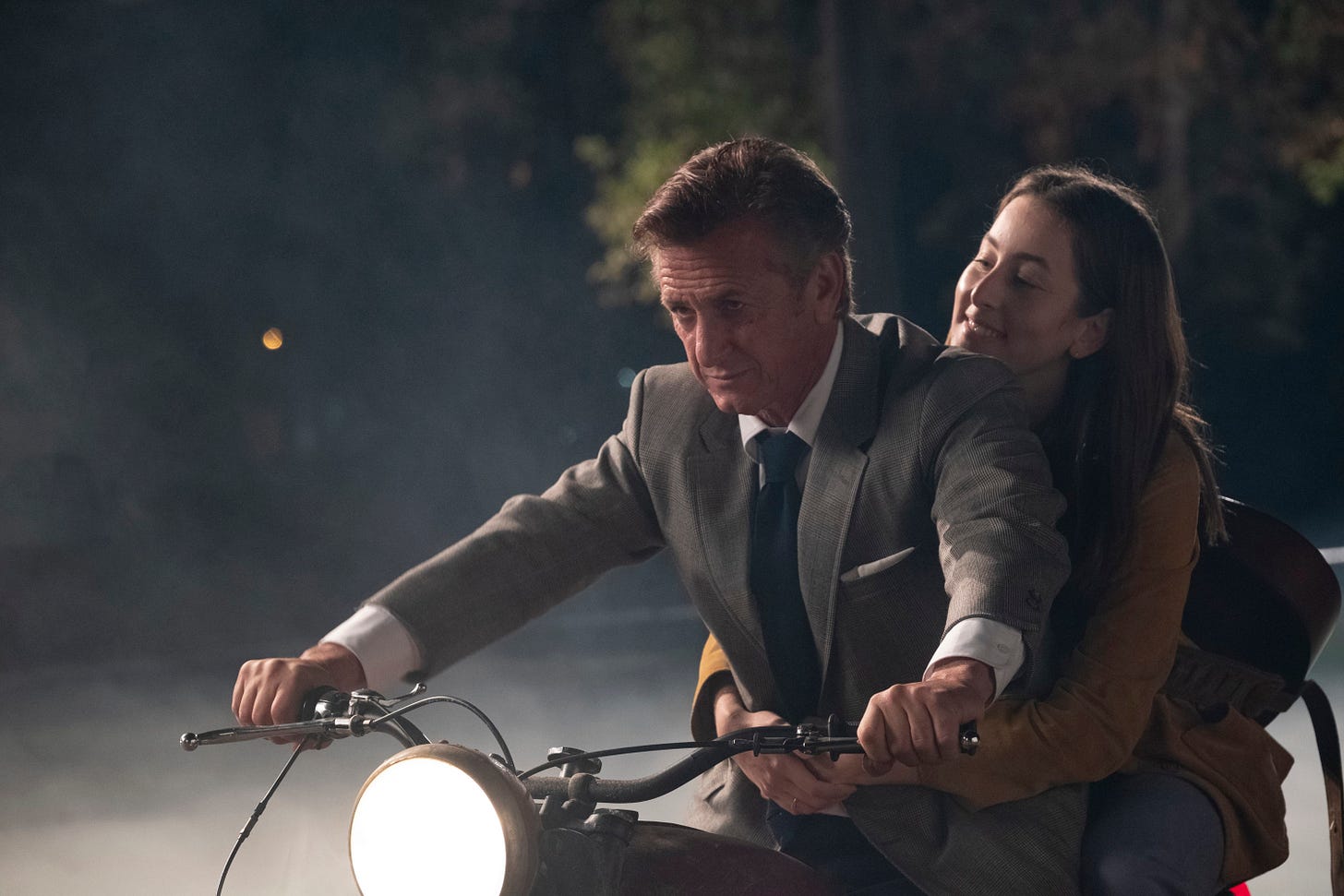
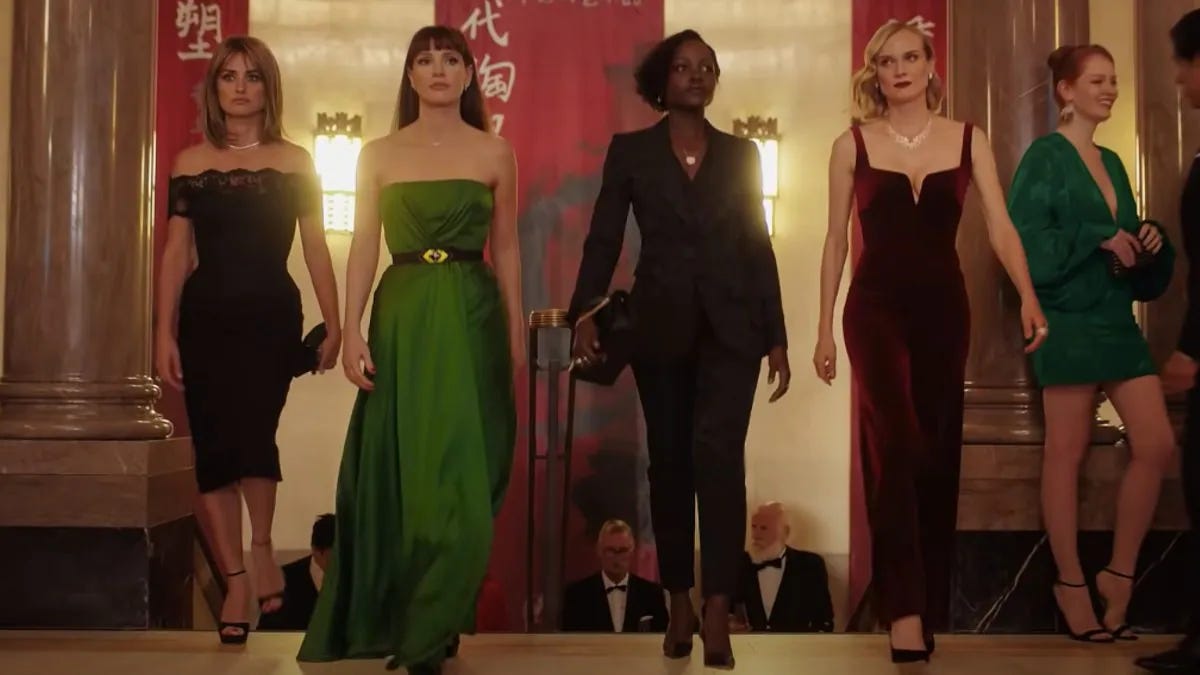
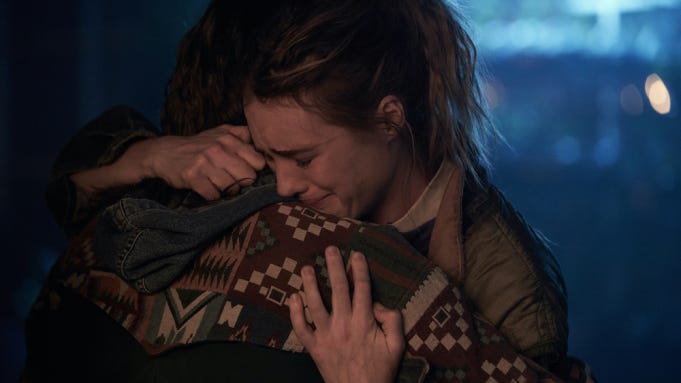

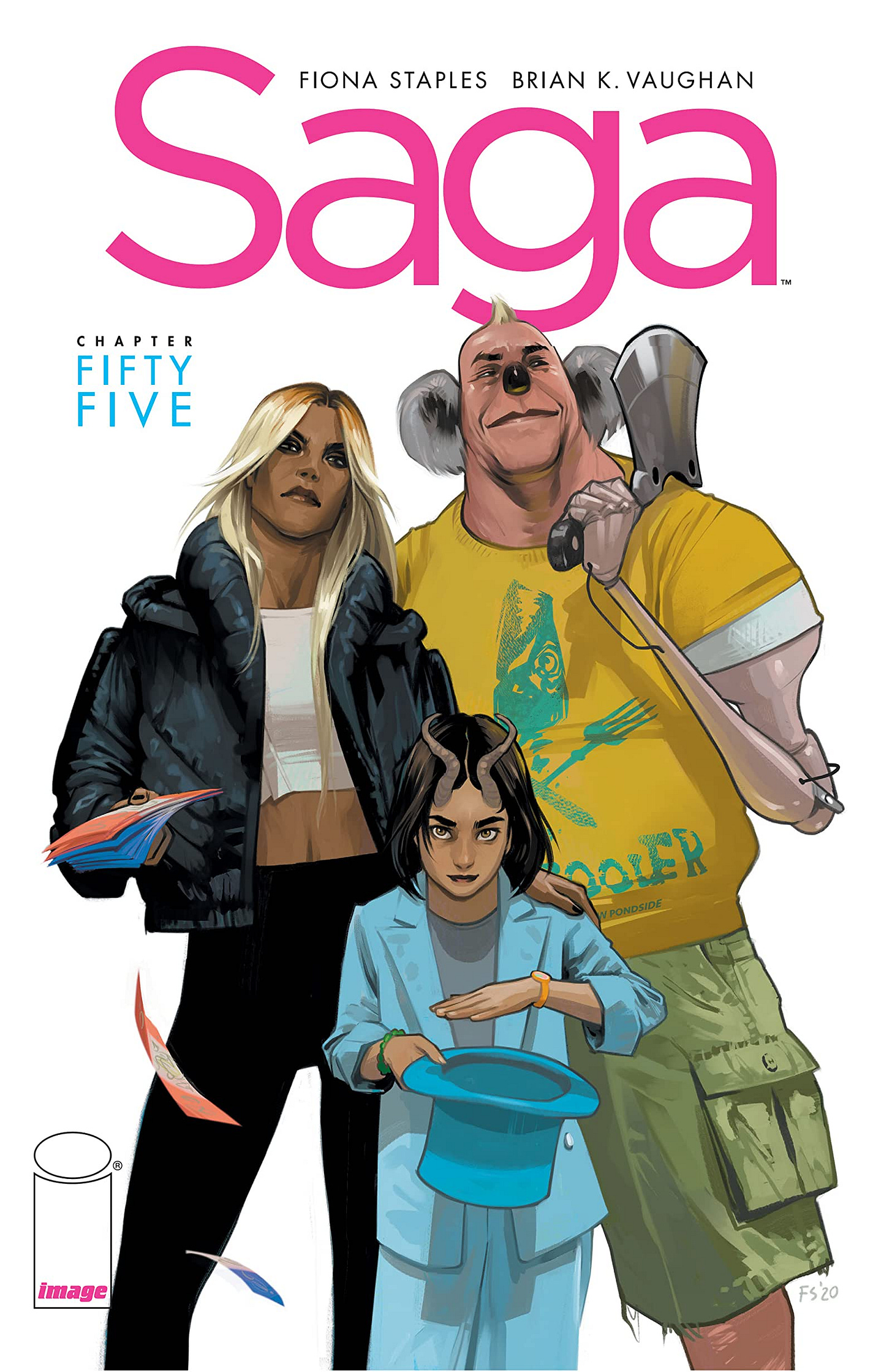
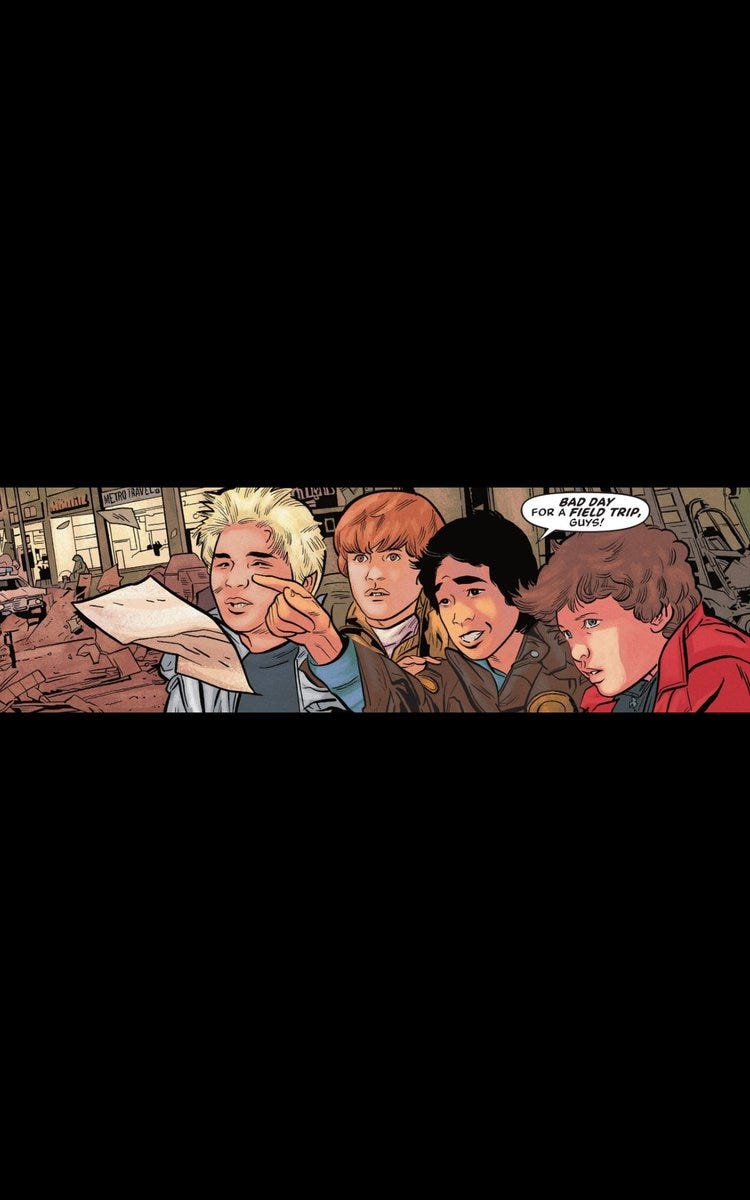
No bold? Rough week! ;)
Late catching up on my reading, but thanks for this. My kids both attend an arts-focused K-12 school which is in all aspects a wonderfully accepting environment, and many kids (even young ones) have been able to express feelings about their identities that we never could have dreamed of back in our day (I turned 50 in September, so similar experience albeit in small-town Canada).
When I hear folks complaining about cultural feminization or the increasing visibility of transfolk, etc I just can't understand how they fail to see what's so obvious to me--that these kids have *always* been there, but in the absence of a supportive culture they've lived miserable lives, unable to be fully themselves. I hope the arrow of progress keeps pointing in the direction of compassion for our fellow humans, but reactionary bullshit like what's happening in Texas, the "gender critical" movement etc keeps me clear-eyed about the necessity to stand up for the future I want to see.
The global rise of right-wing populism is a huge factor; keeping people in their supposed proper roles seems to be an inevitable component of that kind of thinking. The Weimar Republic was pretty open and accepting of GLBT+ folk too, and we all know how that turned out.